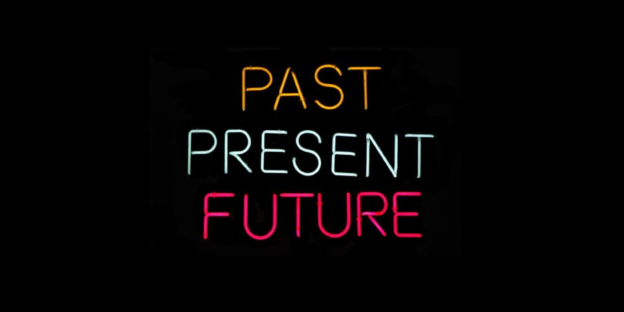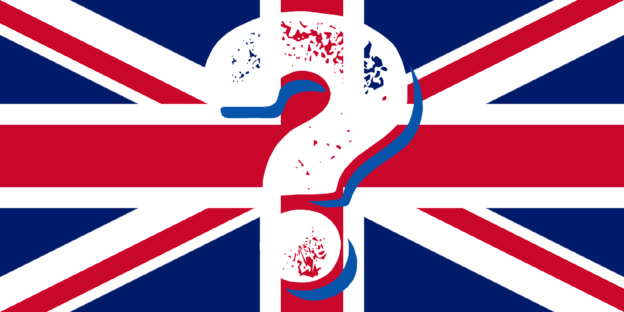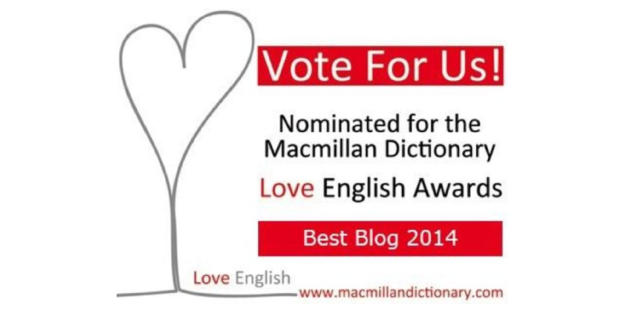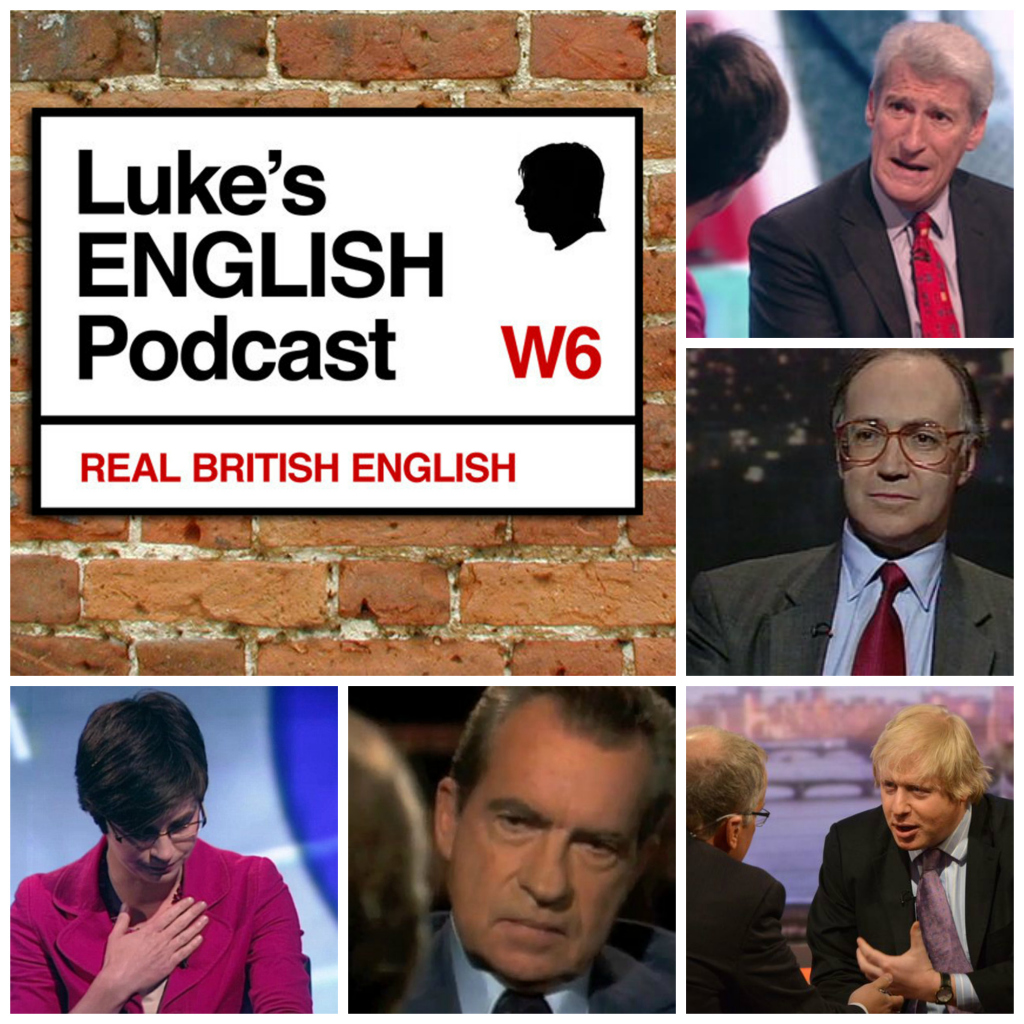Welcome back to Part 2 of this episode which is all about the UK general election which is taking place in a couple of days on Thursday 7 May 2015. In this part we’ll hear statements by 7 leaders from 7 of the main parties in this election, we’ll consider exactly what they said, understand some of the vocabulary and key issues, and then look at the possible outcomes and predictions for the result of the election. Most of what you can hear in this episode is written on teacherluke.co.uk. This is episode 269.
![]() [DOWNLOAD] [PART 1]
[DOWNLOAD] [PART 1]
The Party Leaders & Their Statements (from a live TV debate)
So, I’ve told you about the context. Let’s now listen to what some of these leaders have to say.
On TV there have been a few live debates between the leaders. They’re fascinating.
I’m going to play you the opening statements of 7 party leaders from one of those televised debates.
Listen to the statements, and just try to follow what they say. I’ll give some comments afterwards to clarify. You can see some transcriptions of these statements on the page for this episode.
You’re going to hear from these people in this order:
Green (Natalie Bennet)
Liberal Democrats (Nick Clegg)
UKIP (Nigel Farage)
Labour (Ed Miliband)
Plaid Cymru (Leanne Wood)
SNP (Nicola Sturgeon)
Conservatives (David Cameron)
You’ll probably notice a couple of different accents in there, in particular Nicola Sturgeon (from Western Scotland) and Leanne Wood (from Rhondda in South Wales). Also, Natalie Bennet (from Australia, living in the UK since 1999). The others speak with standard UK RP accents, although I think David Cameron’s accent is slightly more posh (upper class) than the others.
Don’t forget, I will clarify afterwards, briefly, and you can also read a lot of this on teacherluke.co.uk
Details – full notes
GREEN
Let’s put principles and values first
Determined to deliver a fair economy
Make sure the poor and disadvantaged don’t pay for the fraud of the bankers
Return the NHS back to its founding principles
No public money going into private profits
Take action on climate change
Don’t demonise immigrants and people on benefits
To build a decent and humane society, we start with hope
Vote for change
UKIP
The other leaders are all the same on the big issues.
They all support membership of the EU.
They all support open door immigration.
This is why trust in politics has broken down to the extent that it has.
UKIP believes Britain should be a self-governing nation.
Open door immigration has depressed wages for ordinary people, made buying houses difficult, made it tough to get a GP appointment, and (generally) not been good for this country.
Alternative: A trade deal with EU, cooperate with them as friends,
but make our own laws.
Let’s take back control of our borders and put in place an Australian-style points system so we can choose the quality and quantity of who comes to Britain.
This will give ordinary working people an even break.
UKIP would join Conservatives to block a Labour/SNP coalition, in return for a guaranteed referendum on Europe.
LIB DEMs
Nobody is going to win this election outright.
So you’re going to choose who’s going to have to work with who(m) (coalition).
Nothing is perfect, although the country is in better shape now than it was 5 years ago.
I admit, I’ve made mistakes, and learned from them.
With Lib Dems you’ll get the grit and the resilience to finish the job of balancing the books.
I’ll always act responsibly & fairly – I’ll make sure nobody imposes ideological cuts on hospitals and schools.
I’ll always serve the whole, not the part of the country.
The whole – not just the right, the rich, the white, or one particular region. He’s suggesting he’s a better option to SNP.
Essentially, he’s showing that he’d be a necessary balancing force in coalition with the tories.
SNP
It’s a chance to change the westminster system so it serves you better.
The SNP will always stand up for Scotland’s best interests. They will make Scotland’s voice heard.
But it’s not just people in Scotland who feel let down.
Message to non-Scottish voters = friendship.
She wants Scotland to be independent.
SNP want to work with others of like mind across the UK to deliver positive change.
Wants an alternative to austerity, an end the bedroom tax, a halt to the privatisation of the NHS.
Scarce resources should be invested in the future not in nuclear weapons (get rid of the trident missile system in Scotland)
SNP stands for Scotland, but also for progressive politics.
They’re about Scotland, but also they have slightly more left wing ideas to Labour.
SNP are ready to join Labour.
Labour say they won’t join SNP, but this is mainly a defence against an attack by the Tories. Maybe Labour will have a more informal deal with SNP – i.e. confidence and supply (Labour will support aspects of the SNP agenda, and the SNP will pay them back in the form of votes) but Miliband has ruled this out too!
When the lure of government is there, they’ll change their tune.
CONSERVATIVES
5 years ago the country was ‘on the brink’ – unemployment, and one of the biggest budget deficits. (i.e. this was Labour’s fault)
Over the last 5 years they’ve been working on a long-term economic plan (austerity) and it’s working.
2 million more people in employment.
Investing in NHS as well as reducing the deficit.
Cut taxes for 30 million working people.
Now UK has the fastest growing economy of any western country.
Other leaders will claim lots of things, but they’re wrong, like they were wrong before.
The choice in this election is sticking with the plan that’s working, or going back to the debt-taxes-borrowing-spending that got us in this mess in the first place.
Let’s continue with the plan and not go back to square one.
PLAID CYMRU
Speaking to voters in Wales
Representing Welsh communities
Jobs and services have been cut to the bone – this can’t continue
Offers hope for a decent future for young people, for thriving & successful communities.
In a hung parliament, Plaid Cymru can win for Wales.
Wants to represent Wales’ voice in Westminster.
They want a coalition deal with Labour. Labour have ruled it out – because Miliband wants votes for Labour in Wales – he wants a clear choice between Labour and Tories, not an ambiguous coalition compromise.
Wood has been criticised for being a bit lightweight. “Please vote for us, we’re really nice!”
LABOUR
UK succeeds when working people succeed.
For 5 years, wages haven’t kept up with bills. The NHS has been going backwards. Young people have been fearing they’ll have a worse life than their parents.
If I’m PM I’ll:
Raise the minimum wage to £8 per hour. (Currently £6.50 per hour – 8.8E)
Ban zero hours contracts.
Reward hard work again.
Rescue the NHS, hire more doctors and nurses.
Build a future for all of our young people.
Cut the tuition fee from £9,000 to £6,000.
Cut the deficit every year & balance the books.
This is not as good as it gets (Tories) – UK can do so much better.
The full TV debate on YouTube
What’s going to happen?
Let’s listen to a YouTube video from The Telegraph newspaper. It’s a good summary of the possible outcomes. It’s a bit quick though. Yes, you can find a transcript on my website. Just find the page for this episode in the ARCHIVE.
You can see the video, produced by The Telegraph below.
Transcript/Notes for the Video – The Telegraph: What are the possible outcomes?
What’s the significance of 326?
It’s the number of seats the Tories or Labour need to win in the general election for an outright majority, something neither party managed last time around.
What happened last time?
Tories got just over one third of the vote and were forced into a coalition with the Lib Dems.
Scenario 1: What do the Tories need to get an outright majority? Can they do it?
They would need to gain 24 seats. To do this they’d need to be 7 points ahead in polls. An outright win is in easy grasp, they claim.
Scenario 2: What do Labour need to get a majority? Can they do it?
Labour need to gain 70 seats to take power. Only once have they gained this many seats since WW2: Tony Blair’s landslide in 1997.
What could happen to the other smaller parties?
SNP: Buoyed by the honourable defeat of the referendum could more than double its share of the Scottish vote to 43%.
UKIP could add to their tally of 2 to get perhaps as many as half a dozen or more.
The Greens think they could go from one to three. They’re gunning for Bristol West and Norwich South.
What happens if Tories or Lab don’t get enough votes for an outright majority?
In a hung parliament, the incumbent PM gets the first chance of forming a government. If he cannot he will have to resign and then the opposition can attempt to form a coalition.
Scenario 3: Conservatives & Lib Dems – Details?
One potential scenario is more of the same.
Tory backbenchers wouldn’t like it, the public may be wary of it but if the Lib Dems can hold enough seats, renewing the coalition may be the obvious choice for David Cameron to stay in power.
Scenario 4: Lab-Lib – Details?
Alternatively, a grand left-wing coalition could see Labour govern with the Liberal Democrats.
Voters torn between the two parties may be delighted.
Senior Lib Dems are bitter about the attacks they’ve taken from Labour, and insist they won’t allow Nick Clegg to be forced out as part of any deal.
Scenario 5: Rainbow Coalition – details?
Neither party may wish to settle with the Liberal Democrats, or they may be too small. There then begins a scramble to assemble a rainbow coalition. It’s likely to be an arrangement known as confidence and supply.
The government will sit without a majority but will be propped up on key bills and protected in confidence votes in exchange for specific policies.
What would the SNP do?
The SNP have said that they will prop up Labour but not the Tories, in exchange for more powers for Scotland, not renewing Trident and easing austerity.
What about UKIP?
Nigel Farage has said that UKIP would do a ‘deal with the devil’ to get an early referendum on membership of the EU.
And look at the Ulster Unionists; conservative, patriotic. David Cameron may ask them to keep him in power.
UUP (Ulster Unionist Party)
On balance:
If the minor parties are sufficiently large then the nationalists or Lib Dems will be the kingmaker.
So, basically, what’s going to happen?
Let me sum up the possibilities in that audio, and look at the bookkeeper’s odds (what are they?)
1. A Tory majority.
I don’t think they can get enough seats. They’ll probably get more than Labour, but a majority is unlikely in my opinion. It’s too much of a stretch. Still, the bookies give odds of 11/2 for this (that’s 5.5/1 – if you bet £1 you’ll win £5.50)
2. A Labour majority.
They need 70 seats to get to 326. They just don’t have enough support for that, especially since they’re losing so many seats to SNP in Scotland. The odds are 40/1 (very unlikely).
3. Con-Lib coalition.
It’s possible, if the Lib Dems get enough seats. But it wouldn’t be that popular with some Tories because they don’t want to be held back by the influence of Lib Dems, and the public might not be happy with another 5 years of the same thing. Odds are: 7/2 = 3.5/1) That’s quite likely.
4. Lab-Lib coalition.
If the Tories can’t join the Lib Dems (maybe because the Tories don’t get enough seats, or because they can’t make an agreement for some reason) this could be a possibility. However, Labour have attacked Nick Clegg lots of times over the past 5 years, and they’ve said they would only join the Lib Dems if they got rid of Clegg. The Lib Dems refuse to let another party choose their leader. So, the negotiations would be seriously tough. Odds are: 10/1 (possible)
5. A minority government – either Labour or Conservative, running a ‘rainbow coalition’.
What the hell is a rainbow coalition? It sounds lovely!
This is when a minority government runs, and does individual deals with different parties on a law by law basis. So, instead of a formal coalition, the government would get support votes from some MPs from other parties, in return for certain laws.
It would be messy, and fragile, and unsatisfying.
However, the bookies seem to think it’s possible:
Labour Minority 13/8 = 1.625/1 (you bet 10 you get back 16.25 profit)
Conservative Minority 4/1
The only thing we know, is that we don’t know what’s going to happen.
Nevertheless, here’s my prediction.
The results will come in on Friday morning, and nobody will get a majority. Then the negotiations will begin – and they’ll continue for days and nights. We might not know what our government will look like until sometime the following week. They will make a decision though – it won’t be like in Belgium where they had no government for ages. We’ll get a government, but it might be messy and compromised.
The tories will probably get more votes than Labour, but they won’t be able to form a coalition with anyone because the Lib Dems won’t get enough votes, and neither will UKIP. Maybe they’d join with both, because Nick Clegg says he’d be happy to have a referendum on the EU (which is what UKIP want) but could the Lib Dems really face being in government with right-wingers like UKIP?
So, I reckon Cameron will have to resign because he won’t be able to make a satisfactory agreement.
Then, Ed Miliband will have a go at forming a coalition.
None of his options are particularly easy.
A deal with SNP would be a fairly obvious choice because they’ll have enough seats to help him reach 326. But Ed Miliband has said he definitely wouldn’t do it (but I think he’d change his mind if it got him power). Of course, the SNP would make various demands in return for helping Labour. Those demands would be to get rid of the nuclear weapons defence system called Trident which is based in Scotland, to raise taxes, so spend even more on public services and possibly to demand another independence referendum.
Doing a deal with the Lib Dems is not easy either, as we’ve already stated.
A Labour minority government would be weak and could break down if all the other parties aren’t satisfied.
We might end up having another general election.
And then I’ll have to do another podcast!
Possible constitutional chaos and then zombies
– The Tories join with UKIP, we get a referendum and the UK leaves the EU, but Scotland demands to remain in the EU because they all voted YES in the EU referendum. The UK leaves the EU and splits up in the process. End result: Zombies.
– The SNP demand another referendum, and get it this time. The UK splits up. End result: Zombies.
– Parliament has no confidence in whatever government is chosen, and Parliament is closed while they try and fix it. The UK proceeds with stalemate and no government. The result: Zombies.
– The SNP dominate UK politics, and conservative MPs demand an English council for English laws. The whole constitutional framework of the UK breaks down in confusion and admin. Result: zombies.
Just joking of course ;)
So, what do YOU think?
What’s your opinion from outside the UK (or inside)?
Do you see any similarities with your country?












